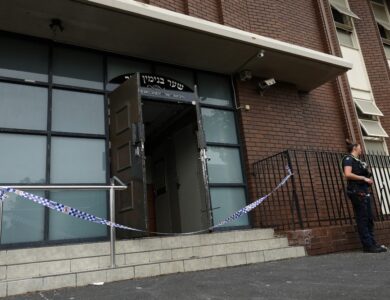China Accuses Taiwan of Cyberattacks; Taipei Labels It Fake News

TAIPEI — Taiwan firmly denied China’s recent allegations of cyberattacks, with senior officials dismissing the claims as misinformation and turning the spotlight back on Beijing as the real perpetrator of global hacking efforts.
On September 23, China’s Ministry of State Security accused a Taiwan military-backed hacking group, dubbed Anonymous 64, of orchestrating cyberattacks on Chinese targets. Beijing even released the names and photos of three alleged Taiwanese members involved in these activities, calling on its citizens to report what it referred to as “anti-propaganda sabotage.”
Taiwan, which frequently faces cyberattacks and disinformation campaigns originating from China, was quick to respond. In a press conference on September 24, Taiwan’s Defense Minister Wellington Koo outright rejected the allegations, stressing that China, not Taiwan, is the global leader in cyberattacks.
“China is the primary source of cyberattacks, not just against Taiwan but also against countries that uphold democratic values. They are the true origin of these threats,” Koo stated. He added that Taiwan’s military remains committed to safeguarding the nation and will not be deterred by China’s baseless accusations.
Premier Cho Jung-tai, speaking separately, reinforced these views, accusing China of spreading “fake news” to smear Taiwan. “We must respond firmly to false allegations aimed at undermining our nation,” he asserted.
China, which claims Taiwan as part of its territory and has not ruled out the use of force to assert control, has consistently targeted Taiwan’s leadership, particularly President Lai Ching-te, whom Beijing brands as a “separatist.” Taiwan’s government, however, continues to assert that its future must be decided solely by its people.








